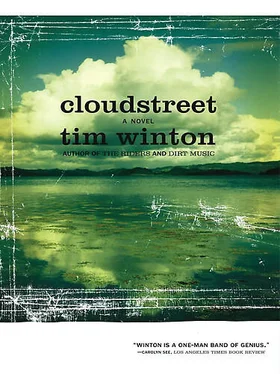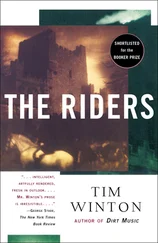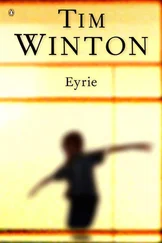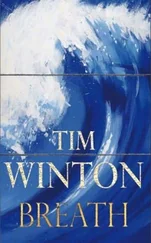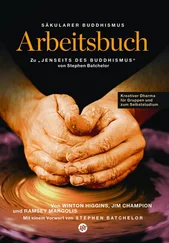I know who they are and they know who I am. Some of us are friends, associates, old flames. I’m clubbish, you’d have to say; it’s my last concession to a bourgeois past.
Rose tried not to panic.
You okay?
Rose strangled out a yes.
You’re not nervous? Don’t be nervous. I’m quite safe, you know. Not respectable but I am able to restrain myself with a lady.
Rose smiled. She ran her fingers along the checked tablecloth.
What are you thinking? You want to go home?
We’re different, said Rose.
You don’t know a thing about me! he protested gaily.
Then tell me. What do you do?
Is a man only what he does?
No, Rose said, only what he is, I spose.
Well, Rose, you’re dead right. I’m a hack. A journalist on the Daily . I is probably what I does.
You’ve been to university, or something, haven’t you?
Ah, sharp lady.
See, we’re different.
So what?
Rose smiled. You write, then?
Well, you couldn’t call what I do writing, though I do scribble a bit in my own time. Do you read?
Yes, she said breathlessly, I read.
Thank God. Thank Jesus, Mary and Josephus, she reads! Rose, you’re a lovely girl. The moment I heard your snooty twang on the phone I knew it was love. See, we’re not so different.
Rose laughed. Toby was so confident, his face so full of mad expression, his hands seemed to crackle with animation. He fitted the din and swirl of this place.
The spaghetti came with wine and salad. Rose hadn’t eaten since breakfast, so she went to work. It was like eating kite string but the wine soon took the awkwardness out of it.
Tell me who you read, he said with a lump of cheese camping on his chin.
Oh, Gawd.
Don’t be shy.
I love books. My room is full of them. I read the whole Geraldton library end-to-end when I was a kid.
Name some names.
But Rose didn’t know names, she only remembered stories.
You name some, she said.
Toby grinned, closed his eyes: Hammett, Steinbeck, Hemingway, James Jones, Mailer, D. H. Lawrence. Xavier Herbert, Sillitoe, Camus …
She let him go on and on in a winy whirl as people brushed by with friendly nods and vats of red sauce. Their duffle coats and minks flapped, their pockets jingled, their laughter blanketed Rose Pickles in, warm as all get-out.
Rose had enough wine in her to keep calm as they jerked their way through the traffic to the Esplanade. The lights of the river seemed more beautiful than she’d seen them. The palm trees along the foreshore cast weird silhouettes.
One of the world’s strangest towns, said Toby, aiming them down Riverside Drive.
I wouldn’t know, said Rose.
Perth is the biggest country town in the world trying to be a city. The most isolated country town in the world trying to be the most cut-off city in the world, trying desperately to hit the big time. Desert on one side, sea on the other. Philistine fairground. There’s something nesting here, something horrible waiting. Ambition, Rose. It squeezes us into corners and turns out ugly shapes.
You must see a lot of things, said Rose, hating herself for sounding so wide-eyed.
Too many things.
Rose thought of morgues, cells, the steps of aeroplanes, the flash of camera bulbs. Her world was mundane and domestic in the high times. In the low times … she couldn’t even think of those times. The night wasn’t big enough for all those feelings.
Toby jacknifed the Morris into a carpark across the river from Crawley. The university clock was lit and it stood above the trees, the lamps, the water.
That’s nice, she said.
No, he murmured. This is nice.
Rose took the kiss and was surprised at how soft his skin was. She slid in close to him.
Nice is a terrible, bourgeois word, said Toby catching a breath.
Whatever, said Rose, whatever. She loved the smooching sound of the upholstery. She stopped being kissed and started kissing. She held his head, felt his hands on her back, in her hair.
Just switching you through, she murmured, trying not to giggle.
Rose Pickles, he said.
His hand was between her breasts and she left it there as the river went by and by.
Oh, Rose, you loved me. How you did. And there you go drifting by with the river, out on an eddy in a black, shiny Morris Oxford with a man who quotes D. H. Lawrence with his tongue in your ear and cheese on his chin. How you longed, how you stared at me those thundery nights when we all tossed and the house refused to sleep. It’s gone for you now, but for me the water backs into itself, comes around, joins up in the great, wide, vibrating space where everything that was and will be still is. For me, for all of us sooner or later, all of it will always be. And some of you will be forever watching me on the landing.
Back at his flat, Rose falls on the bed thinking: dammitall I’m twenty-four years old, as her acre of tulle comes away and his hands run down her legs to peel her stockings; I want him. She feels the air cool on her shins and draws him down. He slides into her and it’s as hard as the recesses of her heart and wonderful, only unlike Rose Pickles’ heart it stops beating and lurching and loses its steel and lets her down into a sad melancholy quiet. Well, she thinks, I’m a woman. She wants to cry, but ends up feeling grateful.
By the time summer came, Rose knew she was in love. Toby was clumsy and vague and she quickly discovered that he wasn’t the political scribe, the crime-chasing reporter she imagined, but the writer of a social column, a man with a notebook at a charity ball whose family name got him in the door. His real love was poetry and talk. He quoted Rimbaud by the river and Freud by the sea and Rose shut up and listened, let herself be taken along by the sheer force of him. He took her to clubs, to balls at the uni where people were stylish and confident in a way she’d never seen, and though he muttered critically in the dress circle, he took her to the pictures just to give her pleasure. They ate Italian food, Greek and Polish, drank at the Latin Quarter with Toby’s friends, and ignored all sports.
The moment she left the yard at Cloudstreet the wide world fell wonderfully upon Rose. She always met him in neutral places out of shame, and never mentioned the big old house, the squealing, romping, toothy noise of those who sailed on in it. Toby read the London newspapers and talked of escaping Perth for a real culture: Bloomsbury, the Left Bank, or Sydney at a pinch. The two of them drove in the warming evenings with the windows down and the wind in their clothes and always found themselves by the river with lights drifting round them.
Toby talked. Talked day and night about sex, about words to describe it, about how other cultures did it, about what it really meant. He gave her a plainwrapped Lady Chatterley and dared her to say the words. She dared him to bodysurf with her at Cottesloe Beach, but he stayed in the shade with an Evelyn Waugh. Rose sunbaked in her Jantzens and laughed at his passing commentary. The Norfolk pines reminded her of Geraldton. She dripped icecream on her Cole of California sundress. She read Scott Fitzgerald, discovered Henry Handel Richardson, and in the evenings cooked Toby meals in his flat and took him to bed where he was rarely as good as his word, though helpful enough in his way.
After sex, Rose went melancholy and fanciful. On the pillow beside Toby, she even imagined herself married with children, with a house in the clean new suburbs and all of Toby’s clever friends around to make her laugh. She’d wear a cashmere sweater tied loosely round her neck, her hair would always be wet and combed back after swimming, her children would be sweetfaced and adored by every passing stranger.
Читать дальше
